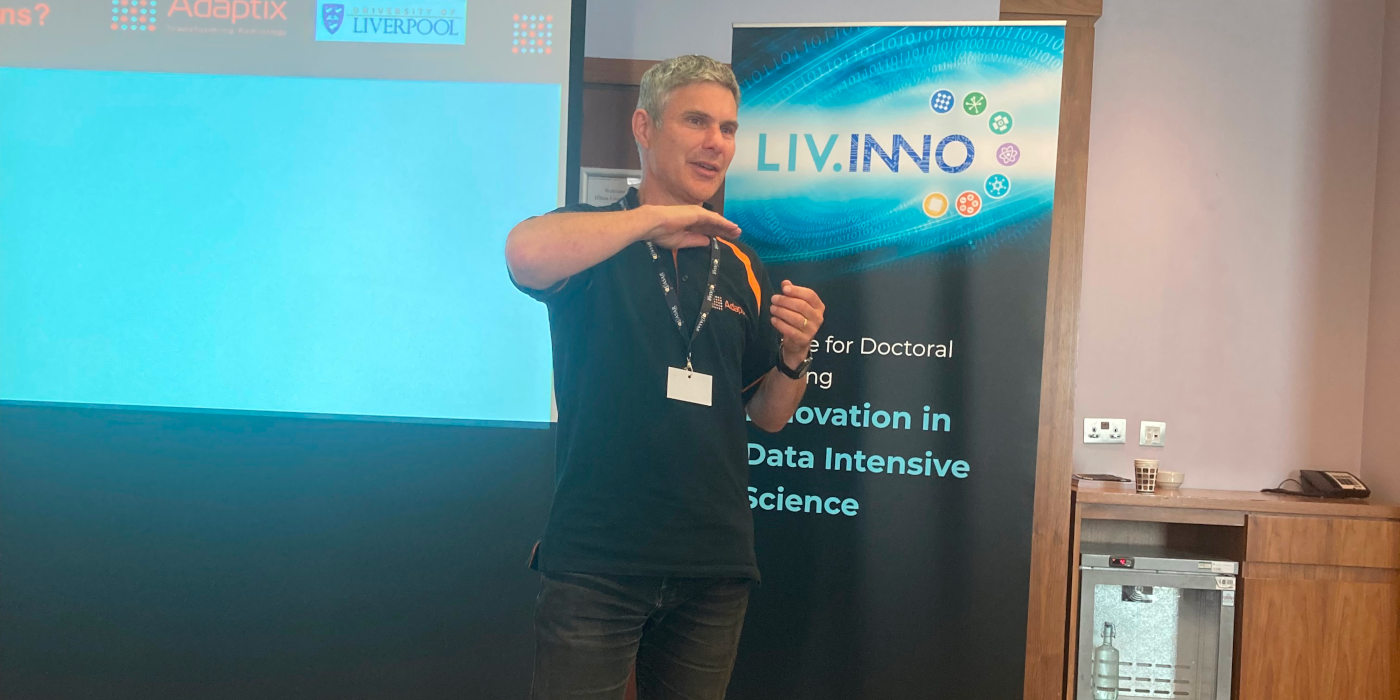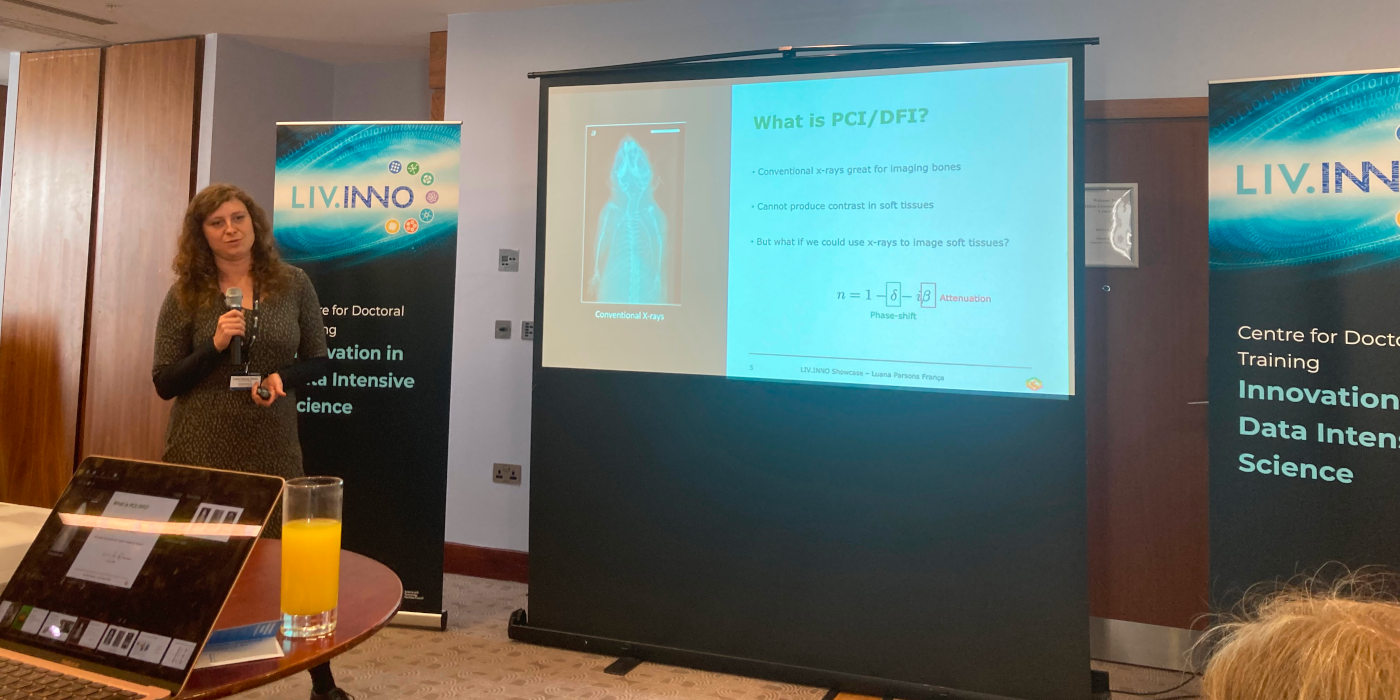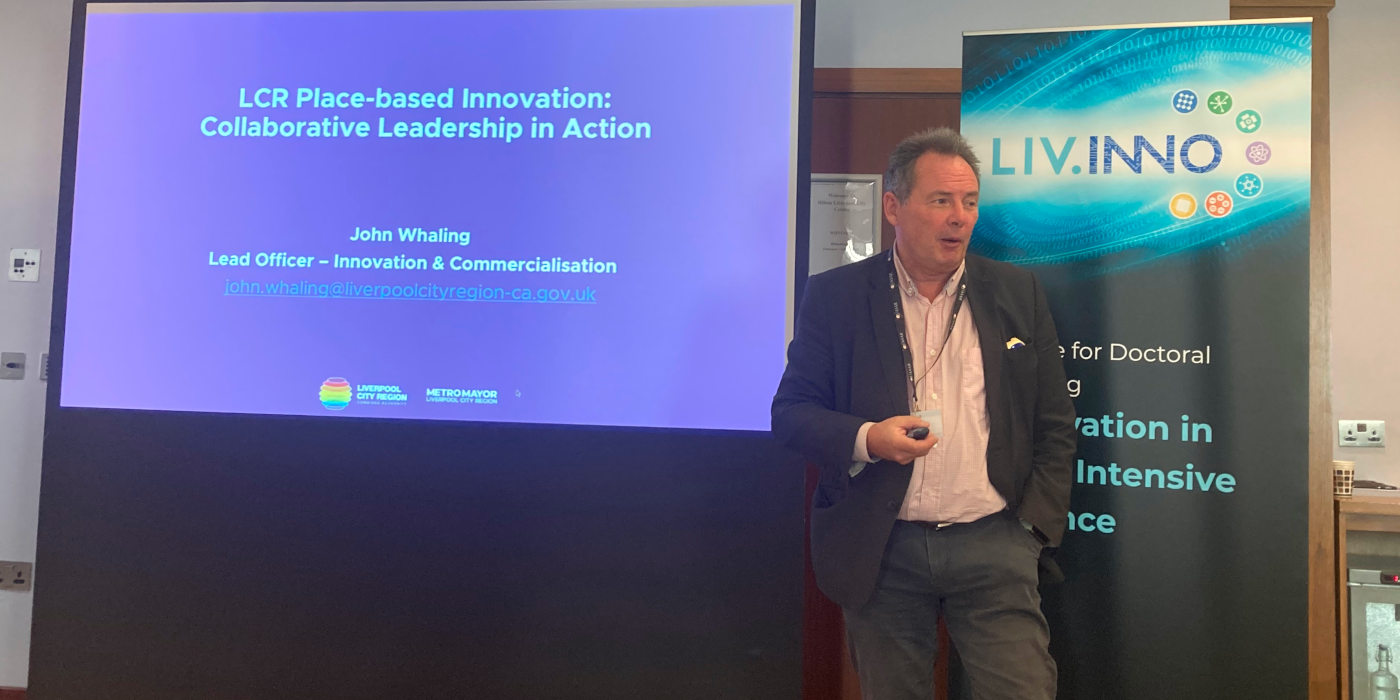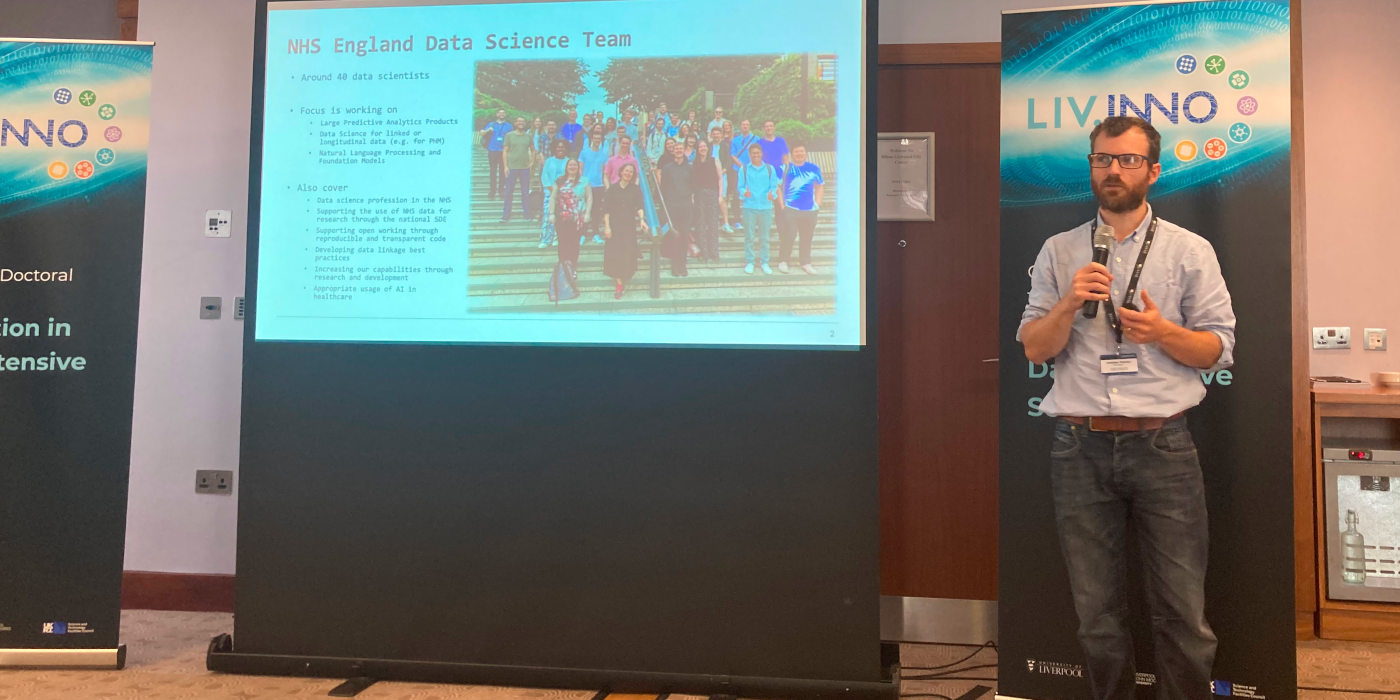The potential of the ‘Great North’ to drive the digitalisation of the UK’s economy has been underestimated, according to Professor Carsten P Welsch, Director of the Liverpool Centre for Doctoral Training for Innovation in Data Intensive Science (LIV.INNO). The centre has a team of researchers working on innovation projects with companies across health, retail, transport, finance, and utilities to increase their competitiveness.
Professor Welsch argues that increasing skills in digitalisation – the use of digital technologies to change business models and generate new revenue – offers the opportunity to increase prosperity, sustainability, and resilience in the economy.

Co-development key to digitalisation
Recent research has shown the although the importance of digitalisation is widely recognised organisations lack the skills to act. In their research Measuring Value from Digital Transformation, Deloitte surveyed 1,600 global business and technology leaders across six different industries were surveyed about their technology investment strategies. It found that three-quarters of UK respondents (74% vs 68% globally) believe that digital transformation – the adoption and implementation of new technologies – is the single most important investment they can make for their organisation. However the 30% of UK organisations lack a transformation strategy, while nearly a third lack understanding of new technology.
“Digital disruption impacts every aspect of society,” explains Welsch. “Although there is a focus from the government on supporting high technology start-ups, the domestic market is often not big enough to sustain them and these early-stage companies are frequently acquired by overseas companies.
“On the other hand, if existing companies were incentivised to adopt new technologies this would make a significant contribution to their productivity and offer a direct benefit to the economy.”
Industries as diverse as healthcare, manufacturing, and transport can benefit from ‘digital’ capabilities, but many of these market sectors lack the skills to analyse their data effectively and to gain value from this information. LIV.INNO is working with these organisations to identify the opportunities and co-develop the tools they need.
Creating an innovation ecosystem
The ‘Great North’ is a campaign by all the metro mayors for cities in the North of England that have seen the decline of traditional heavy industries of the 19th and 20th centuries. The regions have included Steve Rotheram (Liverpool City Region), Andy Burnham (Greater Manchester), and Kim MacGuinness (North West). The concept takes its inspiration from the Great North Run – a half marathon that attracts over 60,000 people and highlights the passion and potential of the region.
The wider Liverpool City Region also has specialisms in accelerator science, the creative industries, infection medicine, novel materials, and advanced manufacturing – offering potential for a dynamic innovation ecosystem aimed at solving societal challenges.
Pioneering approach to post-grad training
Students at LIV.INNO receive a comprehensive training in data-intensive science in areas such as nuclear, particle and accelerator physics, developing their knowledge of AI, machine learning, data analysis and the Monte Carlo method for modelling. They then apply their skills to address commercial challenges.
Professor Welsch has originated and led a number of pioneering research networks that see PhD students on secondment to industry. LIV.INNO follows this successful model, providing specialist skills for bespoke projects, including prediction, risk analysis, visualisation, and modelling of scenarios.
The opportunities for industry and healthcare were discussed at the LIV.INNO Showcase Event on 16th September 2024 at the Hilton Hotel Liverpool City Centre, bringing together PhD students, supervisors, and industry partners interested in data-intensive science.





